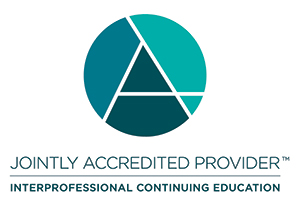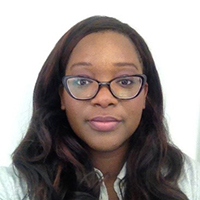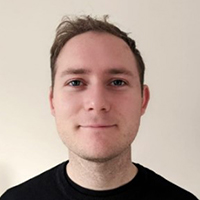Please note: AABB reserves the right to make updates to this program.
Live Program Date: Wednesday, January 29, 2025 - On-Demand Available
Program Number: 25EL-503
Director/ Co-Moderator: Arwa Z. Al-Riyami, MD, FRCP, Senior Consultant, Sultan Qaboos University Hospital, University Medical City, Muscat, Oman
Co-Moderator: Jeannie Callum, MD, FRCPC, Professor, Kingston Health Sciences Centre, Toronto, Ontario, Canada
Speakers:
In the voluntary non-remunerated blood donation sector, attracting and retaining donors from a wide diversity of donors (e.g., ethnicity) is essential for maintaining a stable and safe blood supply and delivering effective health care for the diverse populations they serve. In today's rapidly evolving digital landscape, the need for effective donor recruitment has never been more critical. Donor recruitment videos serve as a key touchpoint, encouraging potential donors. Traditional methods of creating donor recruitment videos often miss the mark in engaging diverse communities, leading to suboptimal donor participation. Knowing how to develop persuasive, impactful and culturally meaningful videos can greatly enhance donor recruitment, especially those from multi-ethnic backgrounds.
Co-design, a process that mobilizes community groups to actively contribute to solving issues relevant to them by taking a leading role in the co-creation and co-implementation of campaign materials, offers one promising solution. Research indicates that co-designing recruitment materials with community partners not only enhances the cultural relevance and appeal of these videos but also significantly boosts engagement and donation rates. By involving community partners in the creative process, organizations can produce content that resonates more deeply with target audiences, thereby addressing specific barriers and motivations unique to different demographic groups.
This program will delve into the core components of successful development of donor recruitment videos through co-design with community partners, to create arts-based, meaningful and emotionally engaging materials. The program will cover identifying your target audience, idea generation, developing storyboards, producing videos, and evaluating the draft material in a diverse donor population. This program is essential for equipping professionals with the strategies and tools needed to develop impactful recruitment materials that drive real results.
After participating in this educational activity, participants should be able to:
Please note: registration for the live eCast is now closed. Registration is available for the on-demand eCast. If you registered for the live eCast you do not need to register for the on-demand eCast (access to the on-demand eCast was included with the live eCast registration).
| Single Viewer | Register |
| Group Viewing | Register |
This activity is eligible for one (1) continuing education credit/contact hour for Physicians, California Nurses, California Lab Personnel, Florida Lab Personnel and General Participation credit. AABB reserves the right to reduce or increase the number of credits granted based on the final activity duration. For more information on each credit type please visit our Continuing Education Credits webpage.
There is no financial support for this activity.

In support of improving patient care, this activity has been planned and implemented by the Association for the Advancement of Blood & Biotherapies (AABB), which is jointly accredited by the Accreditation Council for Continuing Medical Education (ACCME), the Accreditation Council for Pharmacy Education (ACPE), and the American Nurses Credentialing Center (ANCC), to provide continuing education for the healthcare team.
Physicians (ACCME): AABB designates this live activity for a maximum of one (1) AMA PRA Category 1 CreditTM. AABB designates this enduring activity for a maximum of one (1) AMA PRA Category 1 CreditTM. Physicians should claim only the credit commensurate with the extent of their participation in the activity.
Claiming Credit
Live Activity - Upon completion of the live activity, you will receive instructions to complete your evaluation, which is necessary to claim credit and receive your certificate of attendance/completion (credit must be claimed by the date provided in the instructions). The evaluation can be found by logging into the AABB Education Platform.
Enduring Activity - Once the enduring (on-demand) program is available, you will receive instructions to access the AABB Education Platform. Upon completion of viewing the enduring activity, you will need to complete the evaluation, which is necessary to claim credit and receive your certificate of completion (credit must be claimed by the date provided in the AABB Education Platform).
Program & Credit Expiration Dates:
Disclosure Declaration
It is the policy of the Association for the Advancement of Blood & Biotherapies to ensure independence, balance, objectivity, and scientific rigor and integrity in all of its CE activities. Faculty must disclose to the participants any relationships with commercial companies whose primary business is producing, marketing, selling, re-selling, or distributing healthcare products used by or on patients. AABB has evaluated, identified, and mitigated any potential conflicts of interest through a rigorous content validation procedure, use of evidence-based data/research, and a multidisciplinary peer review process. The following information is for participant information only. It is not assumed that the presence of such relationships will have a negative impact on the presentations.
Disclosures for the planners of this event can be found here. Disclosures for the program faculty, peer reviewers, and AABB personnel are provided at the beginning of the program.
Dr. Arwa Al-Riyami is a member of ISBT, AABB, ISCT and ICTMG. Dr. Al-Riyami is a member of the AABB Global Transfusion Forum Steering Committee and the Cell Therapy Section Coordinating Committee. She is an AABB assessor and international Ambassador. She serves as the chair of ISBT Clinical Transfusion working party and is a member of the ISBT Standing Committee on Ethics. Dr Al-Riyami is a board member of the Arab Transfusion Medicine Forum and the Omani Society of Haematology. Dr Al-Riyami is also a member of the WHO Advisory Group on Blood Regulation, Availability and Safety.
Dr. Jeannie Callum is a Transfusion Medicine Specialist and Hematologist at Kingston Health Sciences Center and Professor in the Department of Pathology and Molecular Medicine at Queen’s University. She also serves as the lead for the QUEST Transfusion Research Program at the University of Toronto and is a Professor in the Department of Laboratory Medicine and Pathobiology at the University of Toronto.
 Dr. Eamonn Ferguson is a Professor of Health Psychology at the University of Nottingham, a Fellow of the Royal Society for Public Health (FRSPH), a charted psychologist, associate Fellow of the British Psychological Society (AFBPS), and a Distinguished International Affiliate of Division 38 of the American Psychological Society in 2014. He is Co-Theme Lead for the NIHR Blood & Transplant Research Unit in Donor Health and Behaviour, University of Cambridge, UK (2022 – 2027) and heads the behavioural research arm of the NHS Blood and Transplant (NHSBT) For the Assessment of Individual Risk’ (FAIR) projects which led to UK policy changes to donor selection policy with respect to (i) sexuality and sexual behaviour and (ii) donors from minority communities, with over 28 counties (e.g. USA, Canada) subsequently following with similar policies. He also advises the EU and blood services worldwide on donor behaviour. He has published 277 peer-reviewed journal articles to date in leading journals (e.g., British Medical Journal, Lancet Psychiatry, Transfusion, Nature Human Behaviour), and has an H-index of 77. His work is funded by UK research councils (e.g., ESRC; BBSRC), government, industry (e.g., Pfizer), charity (e.g., Versus Arthritis) and blood services (e.g., NHSBT, CBS) totaling over £20 million. His work on the FAIR project has been recognized by winning the NHSBT ‘Together Award’ in 2022; the University’s Institute of Policy and Engagement Best Policy Impact Initiative award in 2022 and the Vice-Chancellors Medal 2022.
Dr. Eamonn Ferguson is a Professor of Health Psychology at the University of Nottingham, a Fellow of the Royal Society for Public Health (FRSPH), a charted psychologist, associate Fellow of the British Psychological Society (AFBPS), and a Distinguished International Affiliate of Division 38 of the American Psychological Society in 2014. He is Co-Theme Lead for the NIHR Blood & Transplant Research Unit in Donor Health and Behaviour, University of Cambridge, UK (2022 – 2027) and heads the behavioural research arm of the NHS Blood and Transplant (NHSBT) For the Assessment of Individual Risk’ (FAIR) projects which led to UK policy changes to donor selection policy with respect to (i) sexuality and sexual behaviour and (ii) donors from minority communities, with over 28 counties (e.g. USA, Canada) subsequently following with similar policies. He also advises the EU and blood services worldwide on donor behaviour. He has published 277 peer-reviewed journal articles to date in leading journals (e.g., British Medical Journal, Lancet Psychiatry, Transfusion, Nature Human Behaviour), and has an H-index of 77. His work is funded by UK research councils (e.g., ESRC; BBSRC), government, industry (e.g., Pfizer), charity (e.g., Versus Arthritis) and blood services (e.g., NHSBT, CBS) totaling over £20 million. His work on the FAIR project has been recognized by winning the NHSBT ‘Together Award’ in 2022; the University’s Institute of Policy and Engagement Best Policy Impact Initiative award in 2022 and the Vice-Chancellors Medal 2022.
 Abiola Okubanjo is CEO and Founder of Action On Blood, a health communication social enterprise that tackles global health inequalities and inequities by empowering underrepresented populations to participate more in health activities such as medical research, governance and donation. It develops and delivers interventions that build knowledge, improve attitudes and incite behavioural change amongst Black, Asian, ethnic minority and mixed-heritage people, specialising in blood, organ and stem cell donation. Deploying a wide range of community-engagement approaches, Action On Blood produces films and short videos, delivers comedy shows, capacity builds individuals and community groups to deliver interventions, delivers school-based science fairs, runs regional creative design competitions and operates community and corporate blood drives.
Abiola Okubanjo is CEO and Founder of Action On Blood, a health communication social enterprise that tackles global health inequalities and inequities by empowering underrepresented populations to participate more in health activities such as medical research, governance and donation. It develops and delivers interventions that build knowledge, improve attitudes and incite behavioural change amongst Black, Asian, ethnic minority and mixed-heritage people, specialising in blood, organ and stem cell donation. Deploying a wide range of community-engagement approaches, Action On Blood produces films and short videos, delivers comedy shows, capacity builds individuals and community groups to deliver interventions, delivers school-based science fairs, runs regional creative design competitions and operates community and corporate blood drives.
Abiola is on the Board of Directors for a number of organisations, including Sussex Partnership NHS Foundation Trust, a mental health trust. Her background in business and finance includes getting a BSc. in International Management with French at University of Manchester Institute of Science & Technology (UMIST) and studying business at École Supérieure des Sciences Commerciales d'Angers (L'ESSCA) in France. She has worked in Corporate Finance, Leveraged Finance, Private Equity and Hedge Funds. Abiola is a Chartered Accountant (ICAEW), a Fellow of The School for Social Entrepreneurs and has a BTEC Award in Education and Training and a Level 3 Certificate in Phlebotomy.
 Dr. Richard Mills is a Behavioural/Experimental Economist with an Honours degree in Economics from the University of Cape Town and an MSc and PhD in Behavioural Economics from the University of Nottingham. Richard is based in the School of Psychology at the University of Nottingham, where he is working as part of a wider NIHR-funded Blood and Transplant Research Unit (BTRU) in Donor Health and Behaviour. His work focuses on applying insights from behavioural science to better understand blood donor behaviour across cultures, focusing on enhancing the diversity of donor panels for better matching. He also explores different incentive structures to encourage donors and develop a better understanding of the contextual and temporal nature of blood donor behaviour. The BTRU is a collaboration with the Universities of Cambridge (lead institution), Oxford and Queensland, as well as partnerships with England's blood service, the National Health Service Blood and Transplant (NHSBT).
Dr. Richard Mills is a Behavioural/Experimental Economist with an Honours degree in Economics from the University of Cape Town and an MSc and PhD in Behavioural Economics from the University of Nottingham. Richard is based in the School of Psychology at the University of Nottingham, where he is working as part of a wider NIHR-funded Blood and Transplant Research Unit (BTRU) in Donor Health and Behaviour. His work focuses on applying insights from behavioural science to better understand blood donor behaviour across cultures, focusing on enhancing the diversity of donor panels for better matching. He also explores different incentive structures to encourage donors and develop a better understanding of the contextual and temporal nature of blood donor behaviour. The BTRU is a collaboration with the Universities of Cambridge (lead institution), Oxford and Queensland, as well as partnerships with England's blood service, the National Health Service Blood and Transplant (NHSBT).